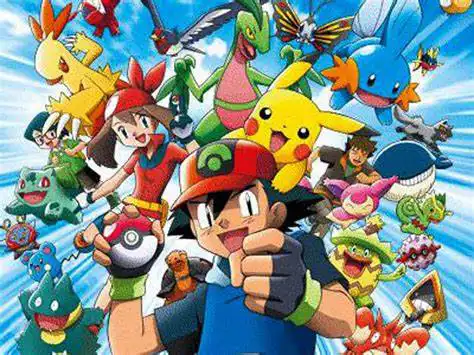Trading Pokemon
Trading Pokemon has always been integral to the game. Each Pokemon game is released in different versions, each containing unique Pokemon unavailable in the other versions. To complete their collections, players must trade Pokemon with others. This process not only encourages social interaction but also contributes to the well-rounded experience of playing Pokemon.
How to Trade

Trading can be as simple as two players linking their Game Boy systems with a cable. Still, as the games have evolved, so too have the trading methods. Today, players can utilize wireless connections to trade Pokemon with friends locally or around the world, even employing dedicated online trading systems.
Trading Etiquette
When trading, it's essential to keep some etiquette rules in mind. Players do not appreciate being offered Pokemon easily found early in the game or weak un-evolved Pokemon. They prefer trading for Pokemon that are harder to find or evolves through trading.
Rare Pokemon
Rare Pokemon are well-sought-after in trades. Usually, these are Pokemon that are legendary, shiny (differently colored), or event-exclusive Pokemon.
Trading Pitfalls
Experienced players seldom make the mistake of offering a weak Pokemon for a highly desirable one. This rule also applies to offering common Pokemon for a rare one. Such behavior is seen as insulting and will likely discourage future trade conversations.
Trading Across Generations
As the Pokemon games have evolved and expanded into new generations, trading has evolved. For example, it is possible to transfer Pokemon from original Game Boy games to the newer, Nintendo Switch titles.
The Migration Process
This transfer process is known as 'migration.' Unfortunately, it can be challenging and often involves several steps. Pokemon from older games are transferred to newer ones, but the reverse is not possible. Furthermore, certain Pokemon cannot be transferred at all.
Migration Limitations
The limitations of migration can disappoint players, especially those who aim for a complete Pokedex in every game they play. Additionally, few experiences in Pokemon are as discouraging as discovering a beloved Pokemon can't be transferred to the latest game.
Misunderstandings in Trading
Occasionally, misunderstandings may arise when trading Pokemon. For instance, a player in a hurry may not realize a Pokemon cannot be traded back, potentially leading to a loss.
Nickname Confusions
Confusions may arise due to nicknames as well. At times, a player might believe they have a legendary Pokemon like Rayquaza because of its nickname, while in reality, it isn’t. Fortunately, the games have systems to determine a Pokemon's true identity.
Identifying Pokemon
Certain tools are available in-game to help identify Pokemon by their species, regardless of nickname. One of these is the Pokedex, a digital encyclopedia that records the data of Pokemon seen and caught during the game.
Avoiding Confusion
To avoid confusion, it's advisable to scrutinize the offered Pokemon's level, gender, and moves. This is especially pertinent when dealing with Pokemon that have been given deceptive nicknames.
Trading's Impact
Trading has always had far-reaching implications in Pokemon. It allows for interactions, fuels competition, and provides a path to complete the Pokedex. Similarly, the exclusivity of certain Pokemon to specific versions of the game ensures that trading remains essential.
Trading's Evolution
Over time, trading has evolved to accommodate the expanding number of Pokemon and the different technological capabilities of Nintendo’s handheld systems. Keeping up with the new trading methods and the latest Pokemon can seem daunting, but it is part of the fun and challenge.
Importance of Strategy
Proper strategy is necessary during trading. Being aware of the worth of the Pokemon being traded and double-checking its attributes can make the difference between disappointment and satisfaction.
Maintaining Trust
Trust is crucial during a trade. Players typically build trust by ensuring transparency, respectful dialogue, and fair trades. Repeated fair trades with the same person often lead to long-term trading partners.
Respecting Others
Respecting the other player's wishes and understanding their expectations are key principles of trading. Violation of these guidelines could result in burn bridges and miss out on potential trades in the future.Final Thoughts
While trading in Pokemon started as a simple concept, it has grown into a complex and essential aspect of the game. It will continue to evolve with future generations of Pokemon games, and players must adapt to these changes.